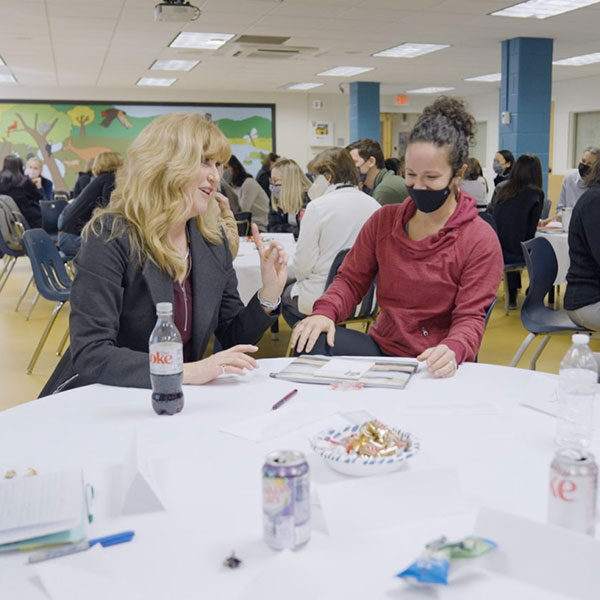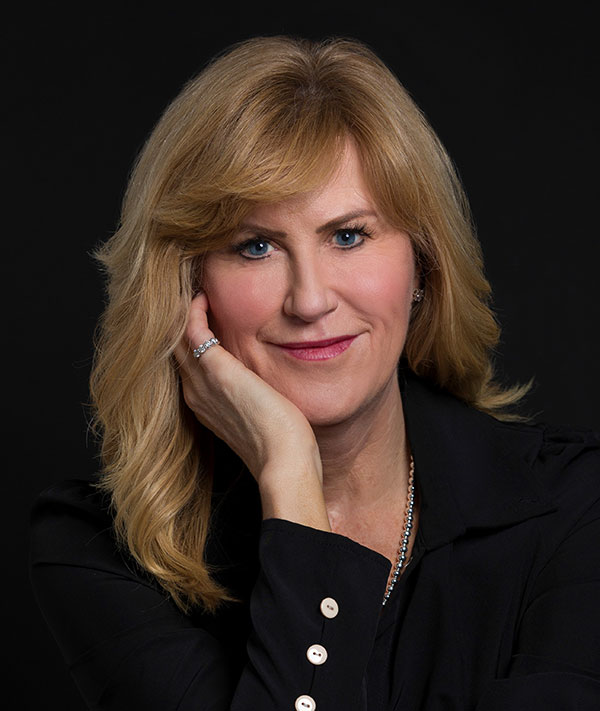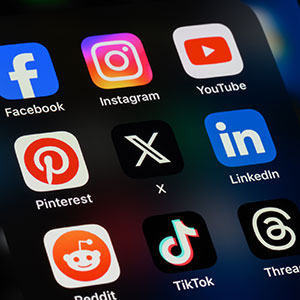
Jewelers and jewelry salespeople have great jobs, according to author Christine Miles: They sell an item that generally involves joy, creates positive experiences, and challenges you to be a great listener so that you can sell even more.
Wait a minute—what’s that last one? Why would being a great listener be a key aspect in jewelry? That’s where Miles got me interested in talking to her more. As the author of What Is It Costing You Not to Listen, Miles has trained herself and hundreds of other people to ask questions, listen intently, and develop specialized skills that help any profession—especially a high-touch area like jewelry.
“People are thirsty to be understood,” Miles says. “Jewelry is a fun purchase. There’s nothing negative about the experience. The selling part is all upside. You’re competing for who is going to make me feel the best [as a customer].… But to create an experience, you have to get the story and then sell. Listening is a no-frills way to create the most amazing experience that someone can have. And it costs nothing.”
Miles is the founder and CEO of EQuipt, a training and consulting company that works with leadership teams to grow sales, develop employees, and create strong cultures. She also is an executive coach and professional keynote speaker. Plus, as we were talking for this interview, she proved herself an excellent listener—after all, she developed something she calls the Listening Path, which she teaches in workshops to companies, universities, and other organizations.

Personally, I listen for a living as a reporter, so I was intrigued when I read about the book. Miles was kind enough to personalize her advice to the jewelry industry in our conversation. For her, she says jewelry has a heart connection to her father, who bought her pieces throughout her childhood.
Recently, Miles says she switched jewelers because she didn’t feel like she was being taken care of when she visited the store; they didn’t talk to her in a way that got to know her. She believes this kind of experience is fairly common for consumers—but the right jewelers know that taking the time to learn about each customer is key to creating that experience people want to have in store.
“When somebody comes in and feels understood—not just listened to but understood at a deep level—they’re going to come back because of what they felt, not just because of the jewelry,” Miles says.
For example, she recommends jewelers avoid asking people seeking engagement rings things like “What are you looking for?” Instead, she says jewelers should start by asking questions, such as, “How did you meet?”
“People like to talk about themselves,” Miles says. “Don’t try to sell to someone until you understand them. Tell them, ‘I want to help you make this lifetime purchase.’ The more somebody’s spending, the more you want to understand them. Ask them: ‘What’s missing in your collection? Why is this important to you?’”
For people who want to be good listeners, Miles recommends open-ended questions or statements such as: “Take me back to the beginning,” “Then what happened,” “How did that make you feel,” “Tell me more,” and “It sounds like you felt…”
Miles had a great jewelry experience when she wanted to buy herself a ring after she finished writing her book. The saleswoman first asked her about her motivations, Miles says, inquiring about the occasion, what the book was about, and why she wanted a ring. Miles was so pleased with the experience she returned later and gave the saleswoman a note of thanks and a signed copy of the book.
“People rush to solve problems. A salesperson’s job is to solve problems. You have a need and I can fulfill that need,” Miles says. “But that’s the result—that’s not the process.… Reflect what you hear to make sure you understand. Summarize the story before the sale. The most powerful story you can tell someone is their own.”
Top: Christina Miles meets with executives, salespeople, and professionals of all kinds to help them “slow down to speed up,” or listen more to sell more and sell in a way that helps everyone. (Photos courtesy of Christina Miles)
Follow me on Instagram and Twitter
Follow JCK on Instagram: @jckmagazineFollow JCK on Twitter: @jckmagazine
Follow JCK on Facebook: @jckmagazine






